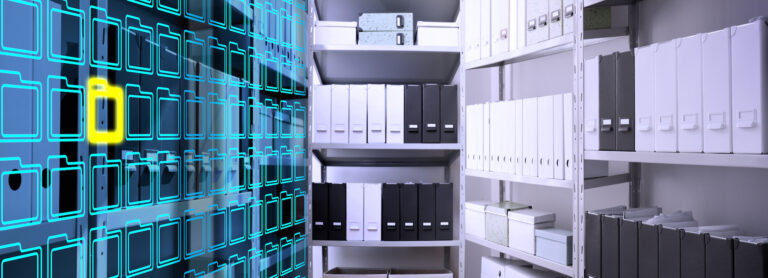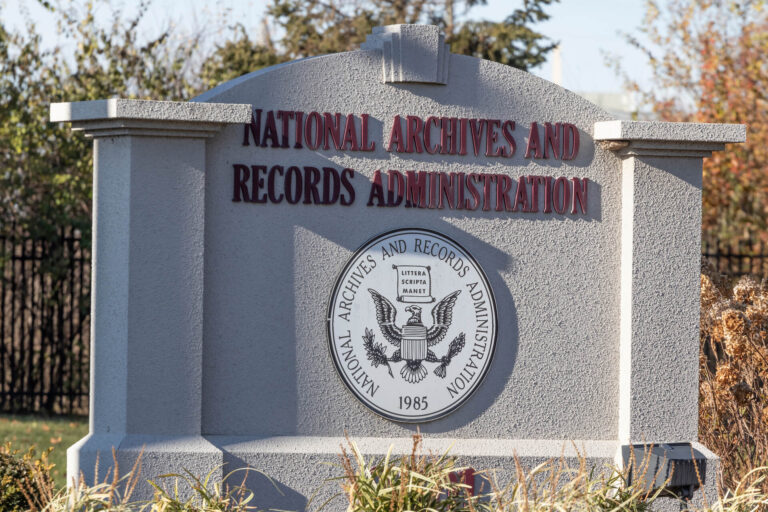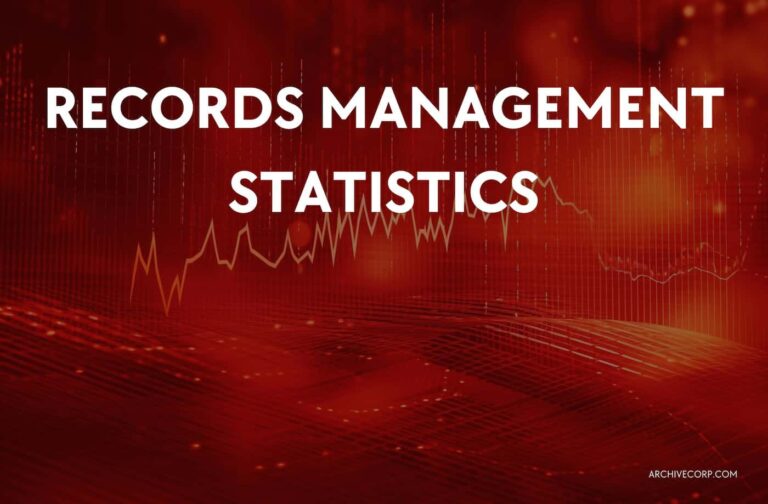5 Factors to Consider When Selecting the Best Type of Storage for Backup Data
Data is the backbone of any modern organization, and backing up that data effectively is a critical aspect of business continuity and disaster recovery strategies. Choosing the best type of storage for corporate data backup is vital to ensuring data security, accessibility, and cost-effectiveness.
With the ever-growing volume of data generated by businesses, selecting the best storage type requires careful consideration of various factors. These essential factors include data security, storage capacity, reliability and durability, cost-effectiveness, and ease of implementation and management. Here’s what you need to know.
Data Security
Data security is one of the most crucial factors when companies are looking for storage solutions to back up data. Protecting sensitive and confidential information from unauthorized access, data breaches, and cyber-attacks is paramount to maintaining the trust of customers and stakeholders. There are several aspects to consider regarding data security, including encryption, access, authentication, and compliance.
Encryption ensures that the solution provides mechanisms to safeguard data during transmission and storage. Additionally, encryption helps prevent unauthorized access to data even if physical storage media falls into the wrong hands.
Strict access controls and authentication mechanisms limit backup data access to authorized personnel only, and role-based access controls (RBAC) can help in defining and managing user privileges effectively.
Data security often also uses multi-factor authentication (MFA) to add an extra layer of security, requiring users to provide multiple forms of identification before gaining access to the backup data.
Having the right cloud storage solutions that comply with relevant data protection regulations is extremely important to keep your company’s data safe. Archive Corporation can provide you with secure cloud storage services that follow industry best practices for quality protection and peace of mind.
Storage Capacity
Backup data requirements can vary significantly depending on the size of the organization, the amount of data generated, and the retention policies in place. It’s essential to consider both current and future storage needs when choosing a storage type. You don’t want a limited storage capacity to cause data loss in the case of a disaster or system failure.
Scalability is extremely important. When you’re selecting data backup storage for your corporation, opt for a solution that can easily scale to accommodate growing backup data volumes. Scalability ensures that your backup infrastructure can keep up with the increasing data demands without disrupting operations.
Also, consider implementing tiered storage solutions, where frequently accessed data is stored on faster, more expensive storage media, while less critical data is stored on more cost-effective media. This approach optimizes storage utilization and reduces costs.
Cloud-based storage offers virtually unlimited scalability, allowing your organization to expand the storage you’re using if needed, by working with your records management company. Just remember that accessing or editing items stored in the cloud requires contacting the storage provider, so you want to be sure that you don’t need instant access to the records you choose to store this way.
Reliability and Durability
Data backups are only valuable if they can be reliably restored when needed. The reliability and durability of the storage solution play a significant role in ensuring data availability in the event of data loss or system failure, because unreliable storage mediums can result in data corruption or loss, rendering the backup ineffective when you really need it most.
To have a durable and reliable data backup, look for storage solutions that offer data redundancy through mirroring or replication. Redundant storage copies spread across different locations reduce the risk of data loss due to hardware failures or disasters.
You also want error correction abilities or a point of contact for editing or other changes that need to be made. Data integrity is crucial for backups, and choosing storage solutions where getting access and making edits isn’t complicated can help you keep everything highly accurate.
Be sure to assess the storage solution’s disaster recovery capabilities, including backup replication to other off-site locations, before choosing a corporate data backup provider. That will help ensure business continuity in case of catastrophic events.
Cost-effectiveness
Cost is a critical factor that influences any business decision, and selecting a cost-effective storage solution for backup data is no exception. Choosing an expensive or financially unsustainable backup solution can strain your corporation’s budget and limit resources for other critical business needs. However, it’s essential to find a balance between cost and the required level of performance and security.
To find that balance more easily, consider the total cost of ownership (TCO) of the storage solution, including upfront costs, ongoing maintenance, operational expenses, and potential hidden costs. Cloud-based storage can provide cost advantages due to reduced hardware maintenance and options to pay for only what you’re using.
Investing in high-quality, reliable storage can save costs in the long run by reducing the risk of data loss and downtime. Taking a look at the data compression and other offered features to reduce overall storage requirements and optimize costs can help you make the right choice for your company’s true needs.
Ease of Implementation and Management
The ease of implementing and managing any backup storage solution is crucial, as complex, cumbersome systems can lead to operational errors and inefficiency. From trusted tape backup storage options to cloud-based solutions, you want to feel like you have the right level of control and management of your data.
Choose a storage solution that provides an intuitive interface and strong management tools that simplify backup and recovery operations, but keep in mind that full access, editing, and control isn’t expected with cloud-based options for corporate data backup storage.
When you work with a quality company like Archive Corporation for cloud backup services you can have full confidence that your data is protected. Additionally, you can contact us for access and editing, so all your data can be kept up to date for accuracy, and you can get to it through us if you need it.
What is the Best Strategy for Backing Up Data?
The best strategy for backing up data involves a multi-layered approach to ensure security and accessibility. Implementing regular automated backups to both local and external storage devices can help safeguard against hardware failures or accidental deletions.
Utilizing cloud-based solutions helps to create an off-site backup for added protection against physical damage or theft, and can employ the use of encryption and password protection to safeguard sensitive data during transmission and storage.
It’s important to verify backup integrity regularly to ensure proper storage and usability. It’s also not necessary to do a full backup of everything, all the time. Incremental backups that address only part of the data, and differential backups that work with only what’s changed since the last full backup was performed are both good strategies to protect everything efficiently.
What is a Backup Server and Why Is It More Trusted Than Cloud Alternatives?
A backup server is a dedicated computer or network storage device that centralizes the process of data backup for an organization. It serves as a repository for all backed-up data from various sources, ensuring efficient management, storage, and recovery. Backup servers offer several advantages over cloud alternatives, making them more trusted in certain scenarios.
First, backup servers provide greater control and ownership overyour data. With many cloud solutions, data is stored on third-party servers, raising concerns about data privacy and security. In contrast, backup servers maintained and managed by a trusted provider allow for strict security measures tailored to your specific needs.
Second, backup servers offer faster data recovery times. When data is stored properly, retrieval is quicker because you can contact the provider to access the data you need to retrieve. They know where to look for what you’re requesting. This can be crucial for time-sensitive situations or critical system failures.
Even though backup servers offer greater trust in certain aspects, they also come with their own risks. Natural disasters, hardware failures, and physical theft could jeopardize locally stored backups. It’s better to work with a corporate data backup storage provider for security and peace of mind.
We Are Happy to Provide You with a Secure Way to Backup Your Data!
Selecting the best type of storage for data backup is a critical decision for any organization. Data security, storage capacity, reliability and durability, cost-effectiveness, and ease of implementation and management are five essential factors to consider in this process.
At Archive Corporation, we offer peace of mind through quality data protection services including physical records storage, scanning and imaging, shredding, cloud storage, tape, reel, and media storage, and shred bags. We want to be part of your disaster recovery plan, so you can sleep better at night.Ready to protect your data securely and efficiently, with a trusted company you can rely on for the long term? Get in touch with us at Archive Corporation today, and let us help you with cloud backup options and other storage solutions for your corporate data needs.




![The Ultimate A-Z Records Management Checklist [2023]](https://www.archivecorp.com/wp-content/uploads/2023/06/records-management-checklist-archivecorp-1-768x504.jpg)


